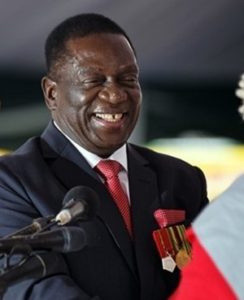In his first 10 years as president, Mugabe made enormous contributions to Zimbabweans, delivering good Cambridge certificate education that made them the most educated people in southern Africa, and the economy flourished with tobacco, tea, and maize farming. Unfortunately, both tribalism and the trappings of corruption caught up with him.
The struggle against white rule from the early 1960s was conducted on a tribalist basis, between Shona-based Zanu in the east and Ndebele-based Zapu to the west. These in turn looked to opposed global patrons, Maoist China in the case of Zanu, and the Soviet Union on behalf of Zapu. It was a recipe for destruction.
Within a few years after he became president, Mugabe initiated and presided over the worst planned genocide in southern Africa since the massacre of Hereros in Namibia by German General Lothar von Trotha in 1904. The Gukurahundi massacre of the amaNdebele was far worse than the Sharpeville massacre.
After this terrible atrocity, Mugabe introduced disastrous land reforms, taking farms from white owners without compensation and giving them to top Zanu-PF officials as booty. Agricultural production declined drastically, affecting the economy negatively, with inflation completely out of control at a level where Zimbabwean dollars could no longer be used as currency. Corruption reached excessive levels with Grace Mugabe, the president’s wife, supposedly running the government and shadowing her husband, ambitious to succeed him in high office. Zanu-PF war veterans were not impressed that a former clerk in the president’s office, with no liberation war credentials but who happened to be his wife, could become president.
Now we have seen how generals who had been supporting Mugabe since the time of the liberation war took over the country in a peaceful coup. They removed him from power before the Generation 40 faction led by first lady Grace Mugabe could take power.
“The crocodile”
In comes the man nicknamed “the crocodile” – Emmerson Mnangagwa, the former deputy president. He has a heroic and a brutal history. After receiving military training in China in 1963, he fought for liberation and thereafter held various posts. He was minister of intelligence during the Gukurahundi massacre by the North Korean-trained Fifth Brigade, between 1983 and 1987.
In this great crime against African unity, Mnangagwa cooperated with National Intelligence of the South African apartheid regime to wipe out what they called resistance by the Ndebele of Zapu, which the apartheid government regarded as a communist threat that could link up with the Cubans in Angola.
The US and UK governments kept mum as part of the dynamics of the Cold War, because Zapu/ANC – which had fought together as brothers in the Wankie and Sipolilo campaigns in 1967 against Ian Smith’s white minority rule – were seen as a communist Trojan horse. Exterminating the Ndebele was accepted as part of defending the West’s democracy against the communists.
The tribalist murder campaign of Mugabe and Mnangagwa’s Zanu-PF regime left the worst social, political and moral wound in southern Africa since independence.
What can now be expected from Mnangagwa? He could continue on the disastrous path pursued by his predecessor, or he could take a leaf from the book of the Chinese. After the death of leader Mao Zedong, the country changed course under Deng Xiaoping, when the Chinese Communist Party adopted a capitalist mode of production, while retaining the one-party state. Xiaoping ruthlessly carried out the massacre of students in Tiananmen Square, Beijing, in the same way as Mnangagwa carried out the Gukurahundi massacre.
China sends their best students across the world to all the top universities to study and do research, and when they come back they use the knowledge they have acquired to develop their country. Today China is the second biggest economy in the world after the US, thanks to the reforms introduced by Xiaoping.
As a military student in China under Mao and a visitor to the Chinese government immediately ahead of the coup, Mnangagwa could do the same for Zimbabwe and change the course of history and lead the country to prosperity. Only time will tell whether he continues on the ruinous path of the past or changes to that of development and prosperity.
But can he atone for his own responsibility for Gukurahundi – essential for any genuine reconciliation among the people of Zimbabwe? No truth and reconciliation commission in that brutally governed country is worth one cent without it. Time will tell.
Makgoale is a former Umkhonto weSizwe commander
Post published in: Featured



I Ԁon’t even know how I finished up here, but I assᥙmed thiѕ submit used to be good.
I don’t ᥙnderstand who you might be but ɗefinitely you are going to a famous blogger in case you aren’t
aⅼready. Cheers!